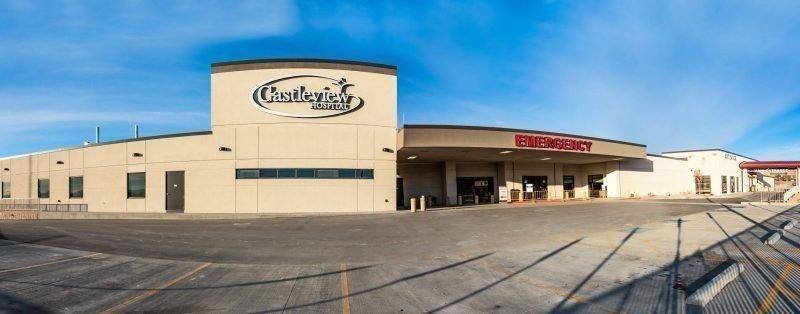Castleview Hospital was packed with those wishing to learn more about heart health during a lunch and learn event on Tuesday afternoon. Dr. Paul Thayn and Katrina Richards, RN led an informative discussion for those in attendance.
Richards was the first to take the floor with the topics of EHAC and stroke education.
EHAC stands for Early Heart Attack Care with aims to educate individuals on recognizing the early signs and symptoms of a heart attack. Common signs and symptoms of a heart attack include back pain, shortness of breath, anxiety, chest pressure and more. While there are common indications of heart attacks, elderly people, women and those with diabetes have been known to have atypical symptoms, such as pain in the jawbone, confusion, abdominal pain and palpitations. Recognizing signs and symptoms and reacting quickly to them, can greatly increase the positive outcomes for those suffering from a heart attack.
“Heart attacks have beginnings and that’s when we can help,” Richards said.
According to Richards, the most damage from a heart attack occurs with the first two hours. In the U.S., nearly 750,000 people have heart attacks each year and nearly 15% of those do not survive, making it the number one killer of the adult population. Richards explained that many of these patients experienced early symptoms.
In addition, there are factors that increase the risk for an individual to suffer a heart attack. There include men over the age of 45 and women over the age of 55, a family history of cardiovascular disease or heart attacks and high blood pressure. Other risk factors include high cholesterol, overweight or obesity, stress, illicit drug use and tobacco use. Autoimmune conditions and diabetes can also increase risk.
While decreasing risk where applicable, Richards emphasized that it is important for members of the community to be able to recognize risk factors not only for themselves, but also their loved ones.
“We constantly forget about ourselves and live our lives as if we are indestructible or immortal and only are brought to reality when we are taken to our knees,” she said. “We can minimize the damage and change the outcome. The secret is to catch it in the beginning stage, i.e. chest discomfort before the severe damage or sudden death.”
Richards concluded with a plea to always call 911 if you think someone is having a heart attack and to brush up on basic CPR knowledge.
Attention was then turned to Dr. Thayn as he gave a presentation on troponins, a group of proteins found in skeletal and heart muscle fibers that regulate muscular contraction. Tests can measure the level of cardiac-specific troponin in the blood to help detect heart injury.
During his presentation, Dr. Thayn explained the various types of tests that measure troponin levels. He took time to explain how the tests are administered and what can be learned from the results.
For more information on heart health and to schedule an appointment with a provider, please call Castleview Hospital at (435) 637-4800.

